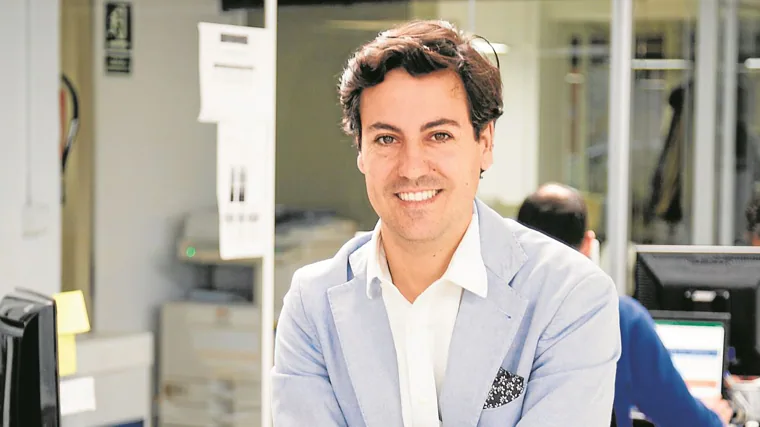Innovation is redefining the business landscape in Spain. Sectors such as agriculture, energy or engineering adopt disruptive solutions that improve the competitiveness of SMEs and midcaps, while responding to global challenges such as sustainability, the so-called circular economy, digitalization and efficiency. Companies of different sizes have taken decisive steps to incorporate advanced technologies, marking a path that demonstrates that the future of the industry involves innovating from within. And all of them, with elements in common: the anticipation of what is to come, and the search for solvent financing formulas, specifically the support of guarantee companies, in this case Iberaval.
The laboratory of the future
Vázquez y Torres Engineering (VTI) has been at the Leganés Technology Park for more than two decades, developing experimental testing systems for leading sectors such as automotive, aeronautical or railway. Its facilities, which occupy 2,500 square meters, include testing laboratories that adjust to the specific needs of its clients. “Our competitive advantage lies in what we call (R&D)2: our own innovation to increase the research and development capacity of other companies,” explains its CEO, Ángeles Torres. This approach has allowed VTI to specialize in solutions such as wave generators and crash test systems, key to improving sustainability in sectors with high technological demands.
The environmental impact has become another of its priorities. According to the company, its projects are recyclable, and also have a long useful life, which facilitates their long-term use and reduces resource consumption. In Vázquez’s opinion, a trigger for deploying this type of initiative has been the financial support obtained from organizations such as Iberaval, “without it it is impossible to carry out this type of activity, and for this reason VTI has been reinvesting its profits all its life.” . Currently VTI, which collaborates with academic institutions in the fields of mechatronics or fluid mechanics, is working on the creation of a training center for the development of high-value projects, with AI in the spotlight.
Hydrodynamic tunnel at the Vázquez y Torres Engineering facilities
In Pedro Muñoz (Ciudad Real), Ianus Engineering applies 4.0 technology to transform the agricultural sector. Its most notable innovation, the TX6 model, is an intensive nut harvesting machine that combines artificial intelligence and real-time data analysis. “This technology allows farmers to anticipate problems and optimize the efficiency of cultivation, reducing costs and resources,” explains its general director, José Ortiz. The TX6 already has five international patents, a milestone that demonstrates Ianus’ commitment to research and development. However, the path has not been easy. “The biggest challenge has been the lack of suppliers and components adapted to our needs, in addition to the seasonality of agricultural campaigns, which limits opportunities to validate progress,” adds Ortiz.
Beyond the agricultural sector, Ianus also stands out for its Mestab system, which reduces stress in metal structures through vibrations instead of thermal processes. «We achieved very important energy savings compared to traditional methods. Furthermore, its application in sectors such as aerospace has enormous growth potential,” the manager emphasizes.
Efficiency and sustainability in action
The energy transition is marking the activity of E4e Soluciones Energéticas, a company with more than 15 years of experience in decarbonization, electrification on demand and renewable generation for self-consumption. Its ability to combine consulting, installation and maintenance has allowed E4e to reduce thousands of tons of CO2 emissions.

Emilio de Andrés, CEO of E4e
«Correct design and implementation is the best maintenance we can offer. If self-consumption projects are done well from the beginning, the facilities will be efficient, but also durable,” explains Emilio de Andrés, partner and director of operations at E4e.
This company based in Madrid has developed its own software that monitors the environmental impact of its projects, analyzing advanced metrics, guaranteeing that they meet the climate objectives established by its clients. In addition, it has expanded its activity towards electric mobility and energy communities. The latter, according to their manager, face technical and regulatory barriers that require constant innovation. “We have worked to simplify shared energy management and interconnection to facilitate its adoption by small groups,” he says.
Sustainability-innovation
The path to innovation is not without challenges. Among the most notable are the lack of specific components, the increasing costs associated with the development of advanced technologies and regulatory barriers. Overcoming them requires a long-term vision and the collaboration of institutions, companies and research centers.
The success of these companies also underlines the importance of a sustainable approach in every process, from product conception to implementation.
Another point of connection is in obtaining financing for high-tech projects, which do not always find the support they deserve in the traditional banking channel. To do this, they turned to Iberaval, a leading guarantee company in the Spanish market, which, in their words, provided the timely response, at the most necessary moment.
#house #innovation #key #business #transformation


